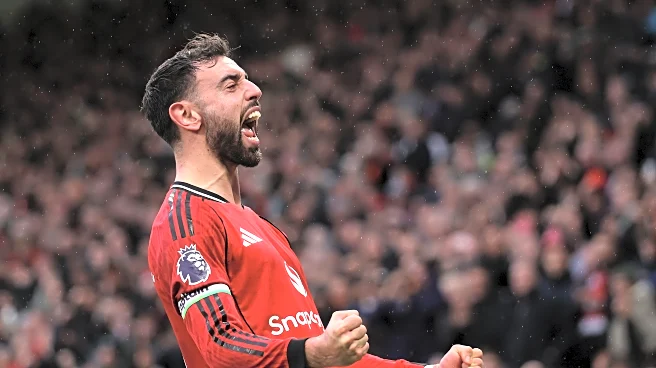What's Happening?
The Milwaukee Brewers have made a strategic decision to start All-Star closer Trevor Megill in the decisive Game 5 of the National League Division Series against the Chicago Cubs. This move comes after the Brewers struggled to contain the Cubs' hitters in the early innings of the previous games. Megill, who has already pitched in two games during the series, will take the mound in hopes of stabilizing the team's performance from the outset. The game is set to take place on Saturday night, with high stakes as the winner advances in the postseason.
Why It's Important?
Starting Trevor Megill, typically a closer, in Game 5 is a bold strategy by the Brewers, reflecting the urgency of the situation. The decision underscores the importance of a strong start to the game, aiming to prevent the Cubs from gaining an early lead. Megill's ability to deliver a solid first inning could set the tone for the Brewers, boosting their confidence and increasing their chances of advancing in the playoffs. This approach highlights the flexibility and adaptability required in postseason baseball, where teams must make tactical adjustments to succeed.
What's Next?
Following Megill's start, the Brewers will rely on their bullpen to maintain momentum and secure a victory. Abner Uribe, who has assumed closer duties in Megill's absence, is prepared to step in if needed. The outcome of Game 5 will determine the Brewers' fate in the postseason, with potential implications for team strategy and player roles in future games. Fans and analysts will be watching closely to see if this unconventional approach pays off, potentially influencing how other teams manage their pitching staff in critical games.
Beyond the Headlines
The decision to start a closer in a pivotal game highlights the evolving strategies in modern baseball, where traditional roles are increasingly fluid. This shift reflects a broader trend towards maximizing player strengths and adapting to game situations, rather than adhering strictly to conventional roles. Such strategies can lead to innovative approaches in team management, influencing how baseball is played and perceived at the professional level.











